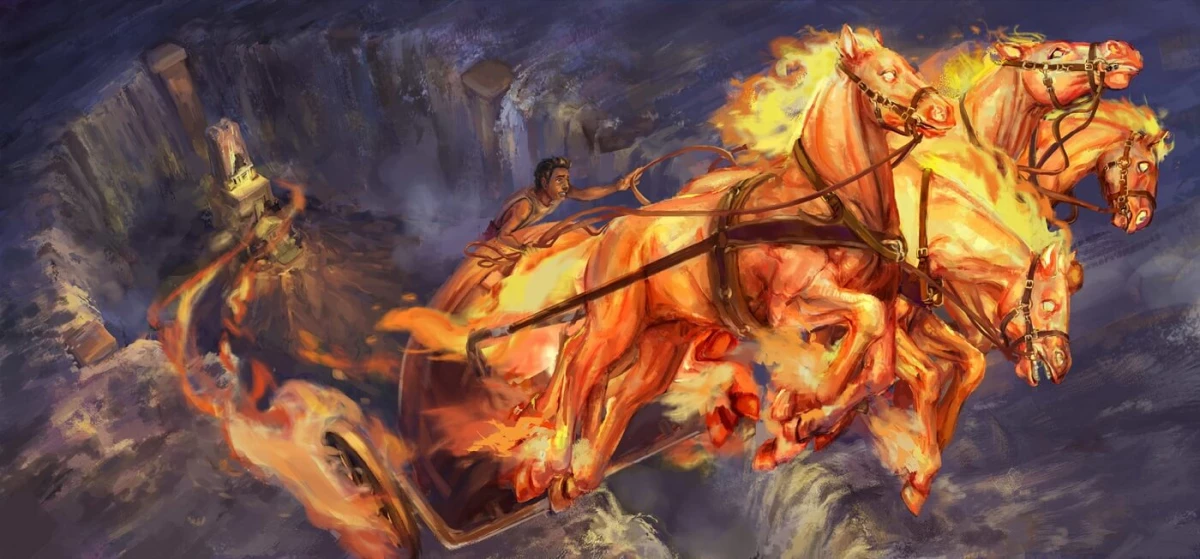
Myth about Faeton I would call one of the most dramatic legends of ancient Greece. He brightly reveals us the worldview of Ellini regarding natural natural cycles, changing the time of day. According to the ancient ideas, the god of the Sun Helios every day leaving on his chariot, making a journey through the sky and illuminating the Earth with his light.
By evening, he went down to the horizon to stay in his palace, and in the morning began to start a familiar work. Agree, this state of affairs is completely normal and naturally. But one day the course of events was broken, which was the cause of the terrible tragedy. Who was the wonderful young man Faeton? And why does it connect one of the most serious disasters in the history of mankind?
Early years Phaeton
The wonderful God of Sun Helios was distinguished by lovingness - he gave her passion no less generously than the light. After seeing the daughter of the marine goddess, Klumen, he could not forget her beauty. Waving to her in human case, he managed to charm a girl who had a son who was born soon. The boy called Faeton.
From his father, he inherited blonde hair and a heavenly blue look, shine, which attracted people. But the peers did not believe the phaeton at all that the son of Helios himself. He was considered an extramarital child of some kind of noble person, and Clemenu is a cheater.
Russed Phaeton could no longer tolerate insults. He came to his mother with a direct question, and she swore that he was the son of Sunny God. "Let Helios deprive me of his light, if I tell a lie!" - exclaimed the climax. She assured Phaeton that he himself could go to his father, because the Palace of Helios was located not so far from his house. So decided to enter the young man.
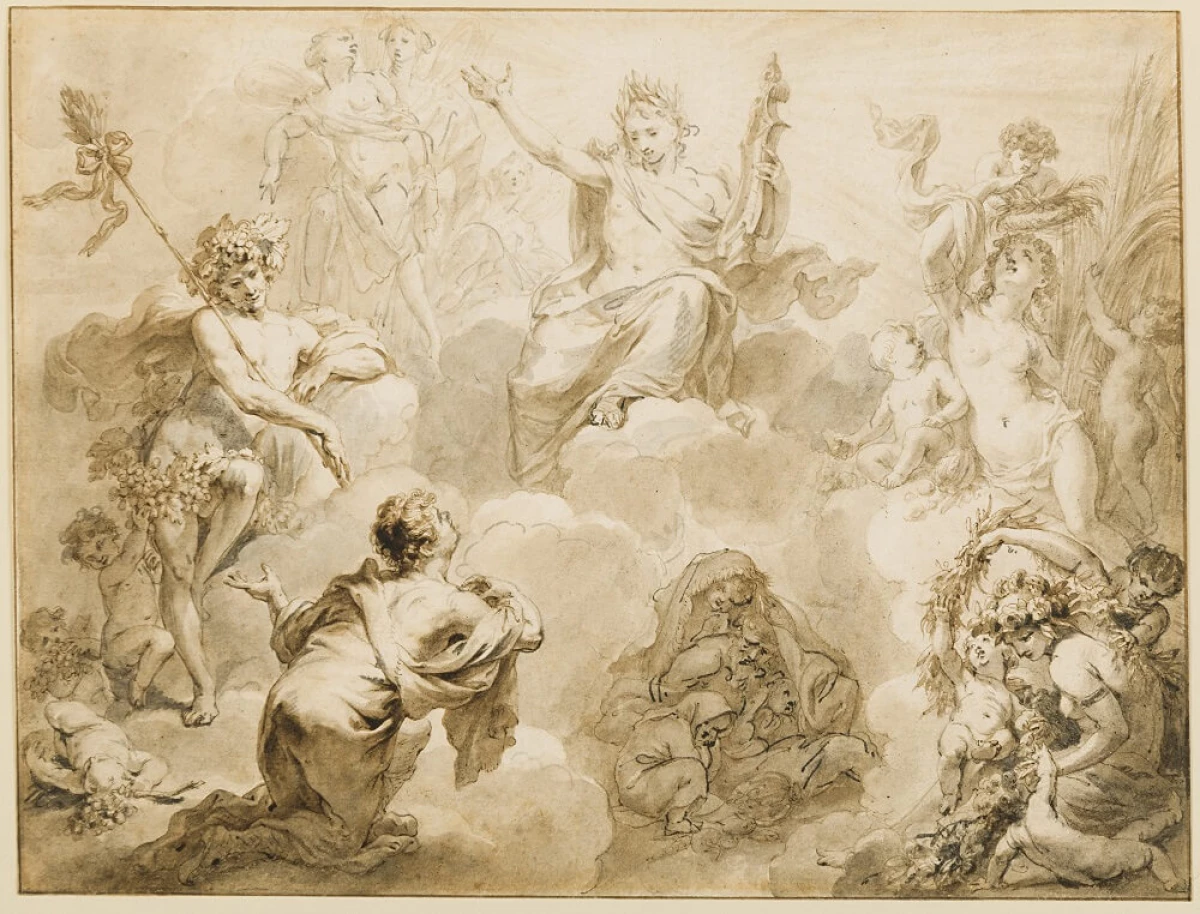
Path to the Palace of Helios
I want to note that no one from ordinary mortals managed to visit the palace of sunny God and see his owner in a true appearance. None of the people could look at the radiance, which spread from Helios.
However, Phaeton was indeed the son of a sunny deity, and therefore managed to approach the monastery of his father. His palace shone with all the paints of the world - God-blacksmith Hephaesty was superbly decorated. The young man swelled inwards and, having passed on long corridors, went into the throne room.
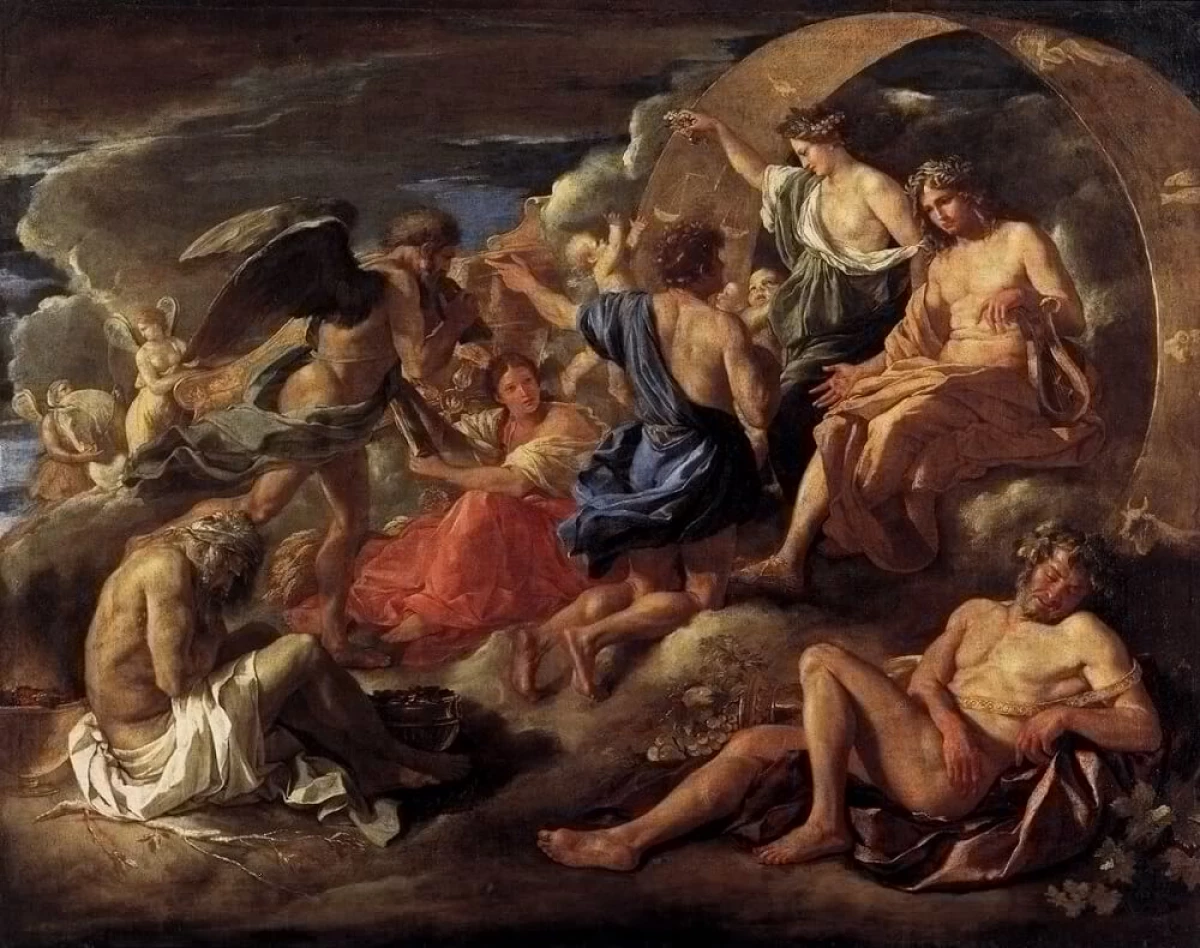
It was there on her throne, a wonderful Helios recreated. True, Phaeton could not approach the father. Despite its origin, he remained mortal, and therefore his eyes could not bear the light that he came from Helios.
But the sunny God himself immediately understood who in front of him. No one else from people could do this path, because Phaeton endured the radiance of the palace and could even be in the same room with his father.
Helios gladly greeted his son and asked what kind of help he needed (because probably the visit was targeted). Phaeton asked him if he was really the son of Helios. God nodded affirmatively and put on the head of Phaeton's shining crown.
"I am very glad to see you," he noticed. "So I swear the river Stetens, that I will fulfill any wish." Nobody could not disrupt such an oath, because the river in the kingdom of the dead fastened the promise, as if life and death - the fate of a person.
Request Phaeton
Alas, Faeton was blinded by the magnificence and the grandeur in which it turned out. The young man asked only about one, but this request led to his father's horror. "You drive every day through all the sky," he noticed. "And I would also really like to look at the world from the height of your chariot."
As you understand, Helios should have transferred to his son with his magic shining chariot for one day. And everything would be fine, but God knew well that few people could cope with the fourth of his fiery horses, which require severe hands and decisive character of the manager.
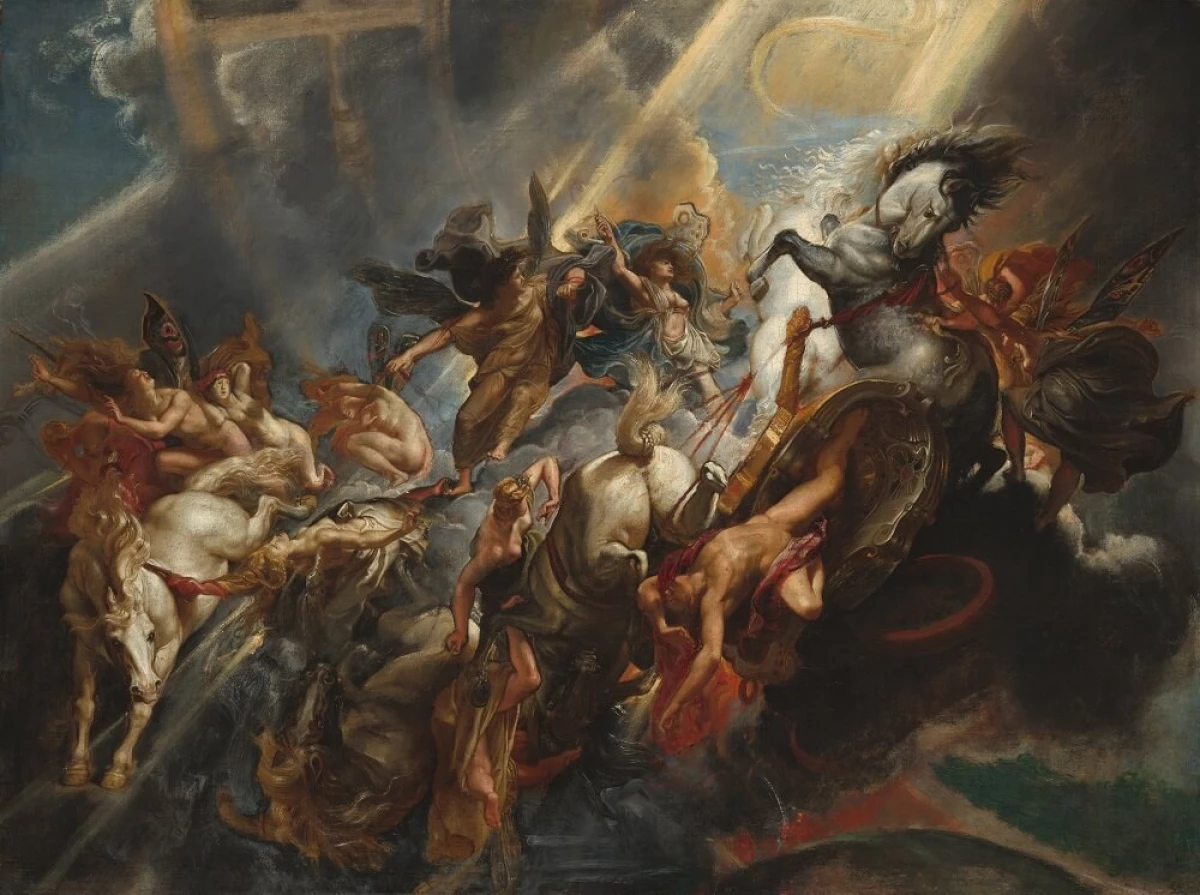
No Helios persuasion could convince Phaeton to change their request. His sorry father was forced to conquer. So, at dawn, Phaeton was already in the chariot of the Sun, sightening an unforgettable adventure.
At first, the rise was very hard, horses with difficulty advanced. The flames broke out of their nostrils, and everything around was argued with heat. A young man was afraid of a joke, I realized that in vain asked my father this trip. But it was too late.
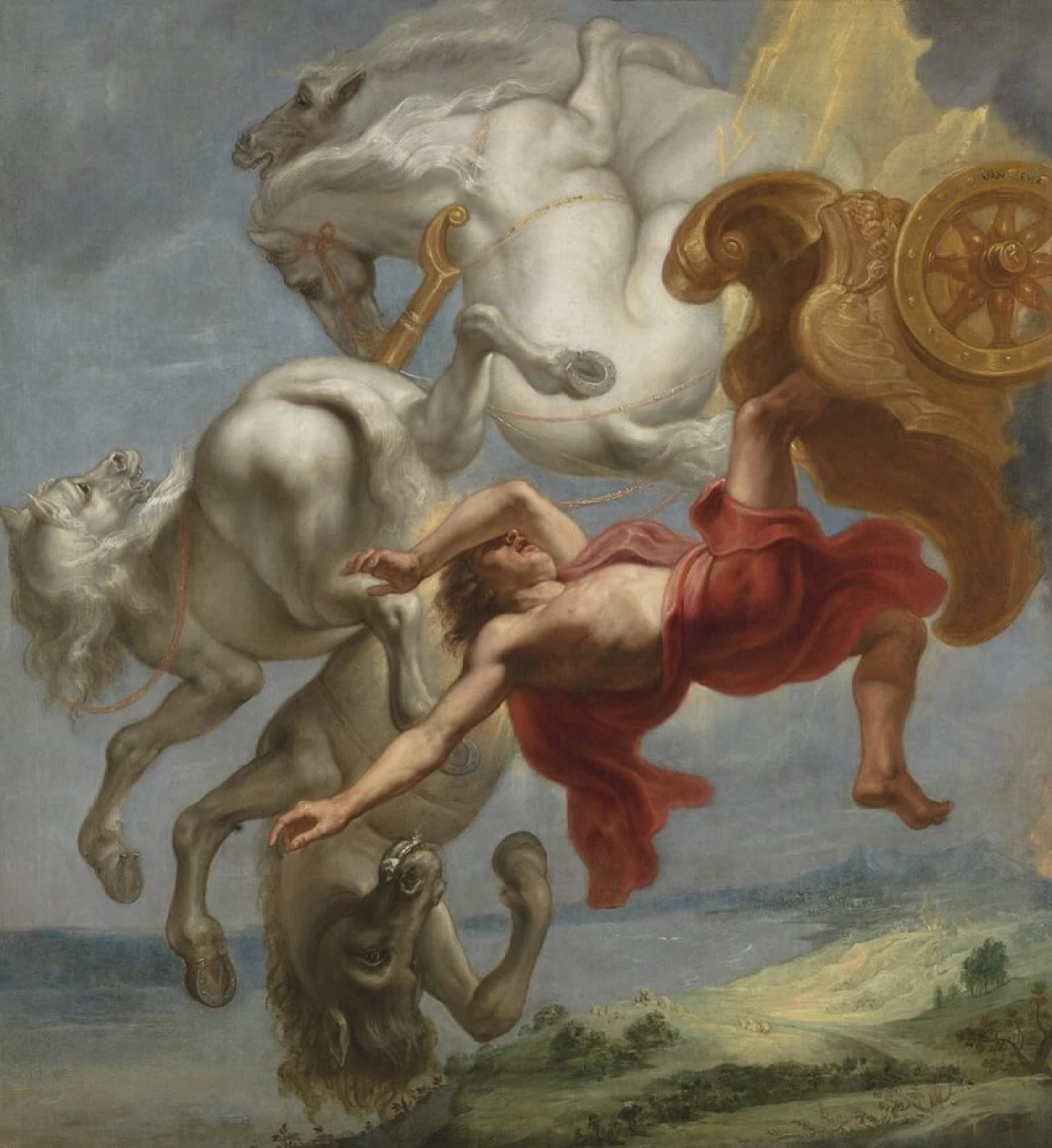
The death of the son of the Sun.
Feeling that the power in the hands of the venue is not at all the one that usually, the animals rushed up. Now they could not stop them. Phaeton was in vain attempted to pull the reins and stop the horses - they did not obey the mortal, which changed their owner-God.
The chariot was among the stars and MGLL, and now the terrible monsters appeared before Faeton. On the one hand, the huge cancer almost cut the horses and the chariot with a culley, from another direction, the nightmare scorpion was increasingly raised.
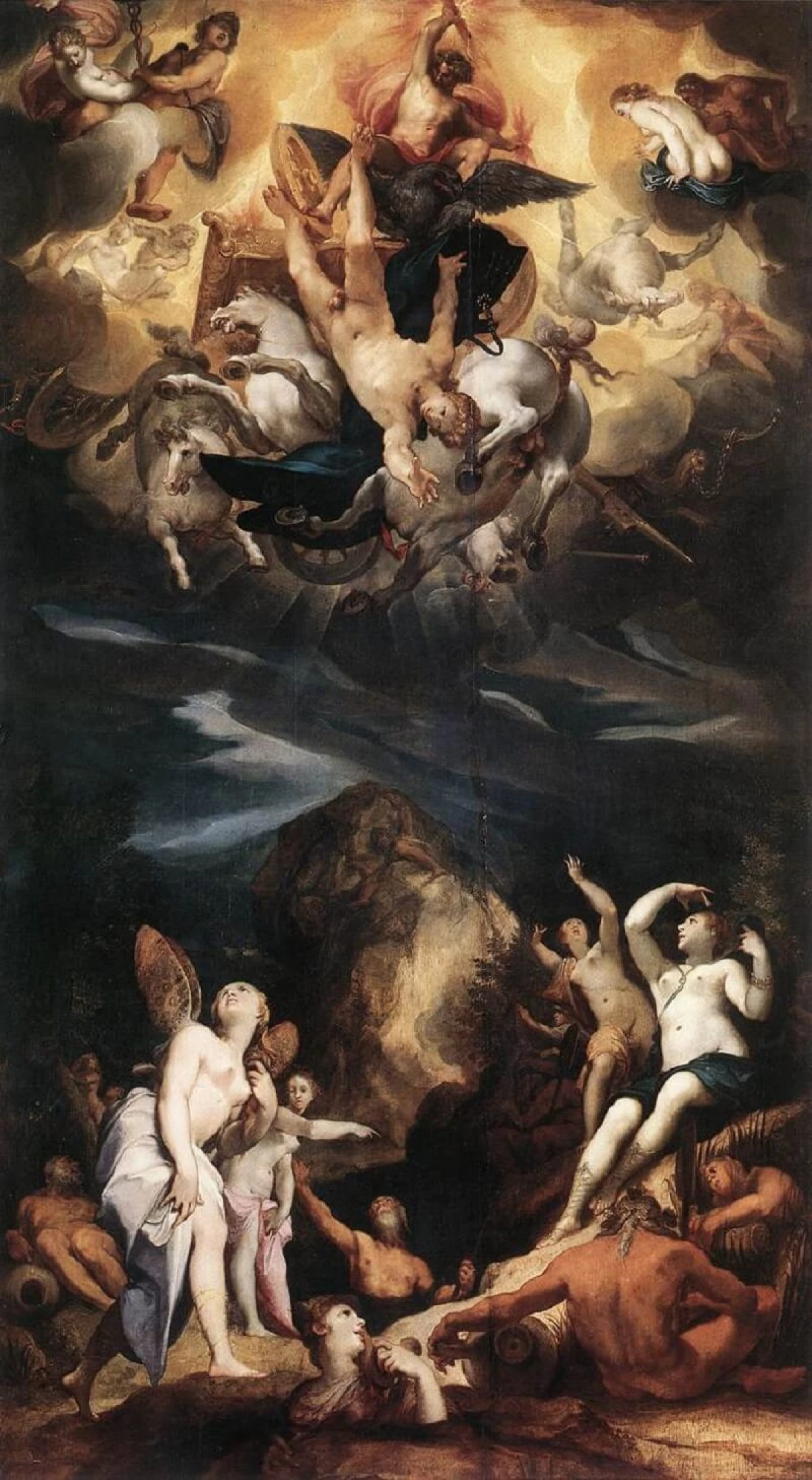
Now frightened horses rushed down. The flames from them embraced the Fames of Phaeton. As if a burning torch, he fell down. Horses dropped him, and the body of the young man fell into the waves of the Eridan River, who was far from his homeland.
Local nymphs, disappeared by the death of an excellent phaeton, washed his body and buried near Eridan. Grief helios There was no limit. For several days, the sun did not appear on the sky, because his God could not come to himself from despair because of the loss of his beloved son.
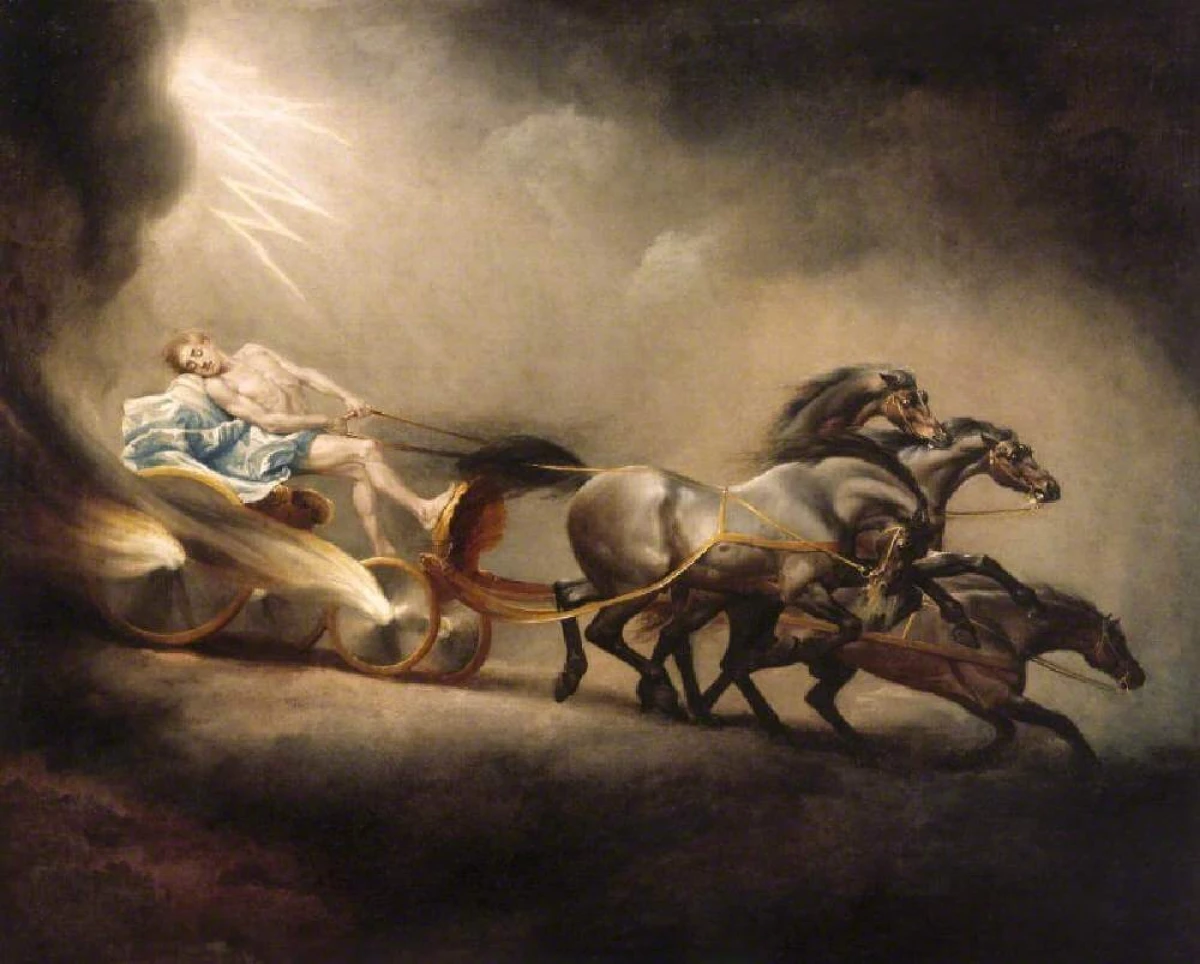
Tradition about Faeton is likely to open us the history of the catastrophe that occurred in the distant antiquity. A burning torch falling from the sky, a few days without the sun in the sky - all this indicates some kind of global cataclysm, which people of that time tried to explain in their own way. The result of reflection and analysis of the situation on the part of mythology was exactly as bright and dramatic legend.
On the cover: Phaeton in a sunny chariot / © vanessa leung / vanessaleung.artstation.com
